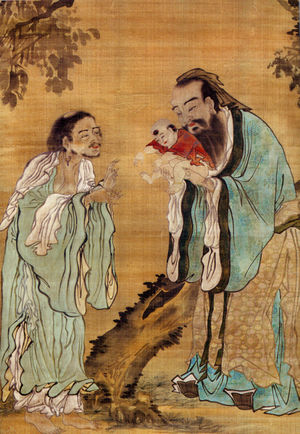Lao Tzu

Lao Tzu (6th century B.C.) was a Chinese sage and mystic, traditionally accepted as the founder of Taoism and author of the Tao-te Ching, one of the most sacred scriptures of Taoism.
The Tao-te Ching is said to be the most frequently translated work next to the Bible, and Taoism was a major influence in Chinese thought until the Communist revolution. Lao-tzu is believed to have once met and spoken with Confucius.
In Chinese, Tao means literally Way; it also denotes Teaching. In Taoism the term takes on a metaphysical meaning as the Absolute, the ineffable Reality, the First Principle and source of all being to which all things ultimately return. The goal of Taoists is to become one with the Tao.
Lao-tzu is an unascended master.
See also
For more information
Lecture by Elizabeth Clare Prophet, published on DVD, Mysteries of the Tao.
Sources
Pearls of Wisdom, vol. 32, no. 29, July 16, 1989.
Pearls of Wisdom, vol. 32, no. 59, December 6, 1989.
